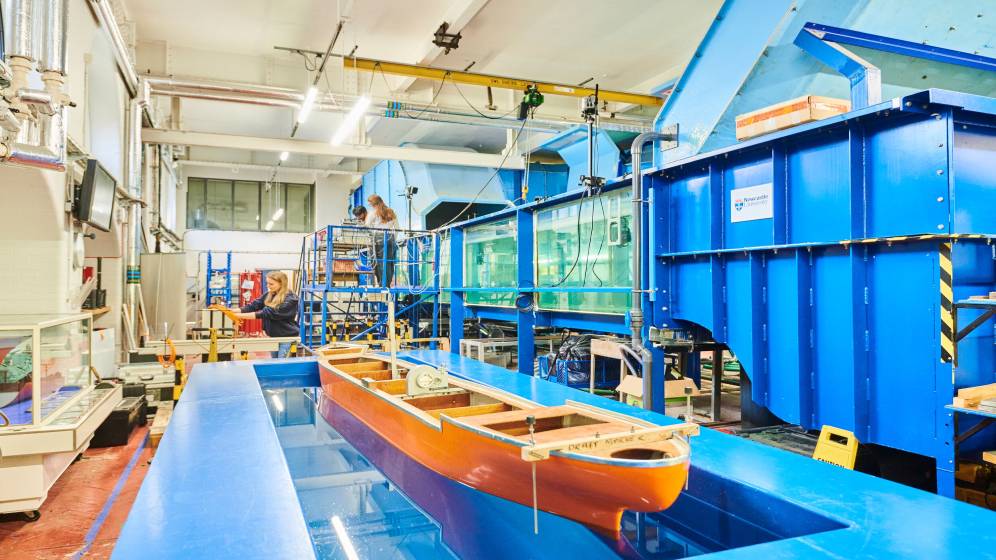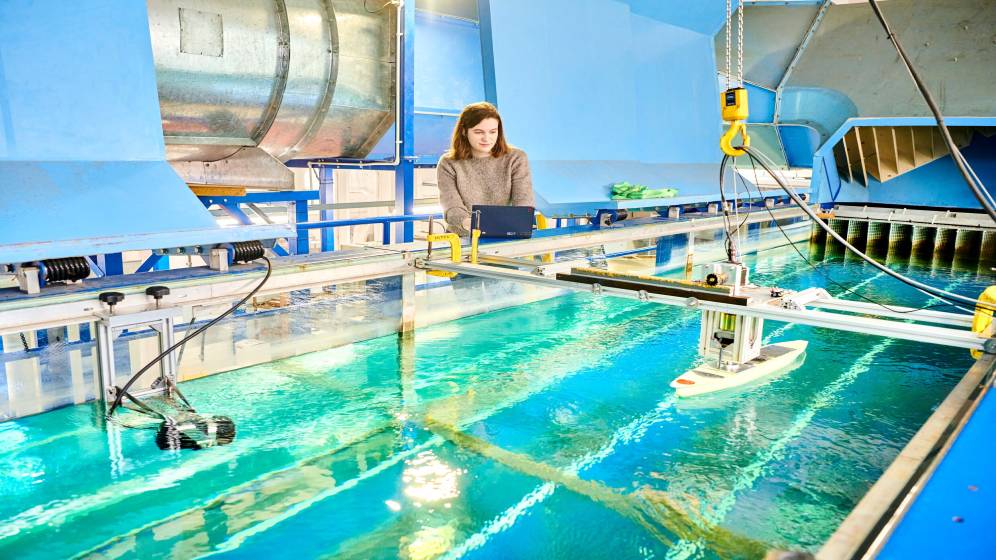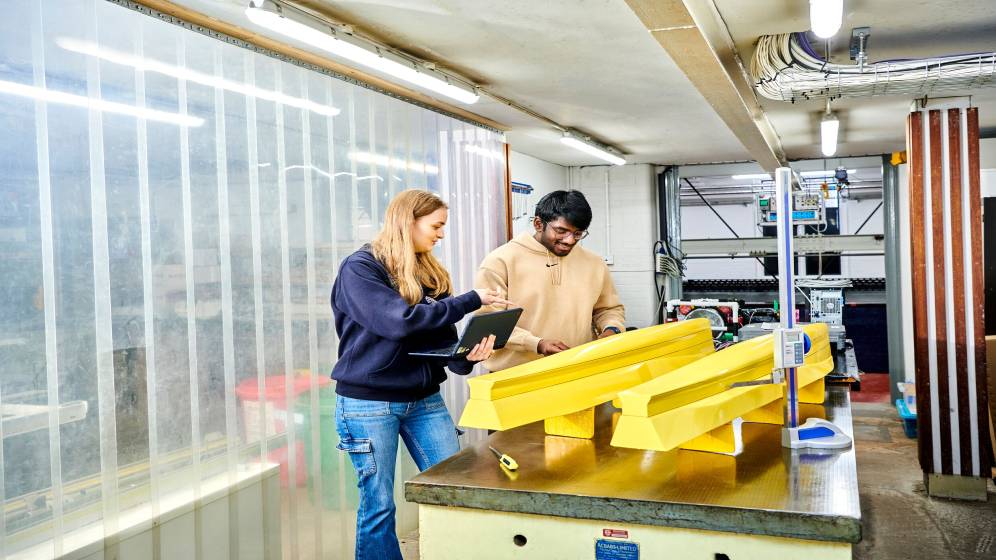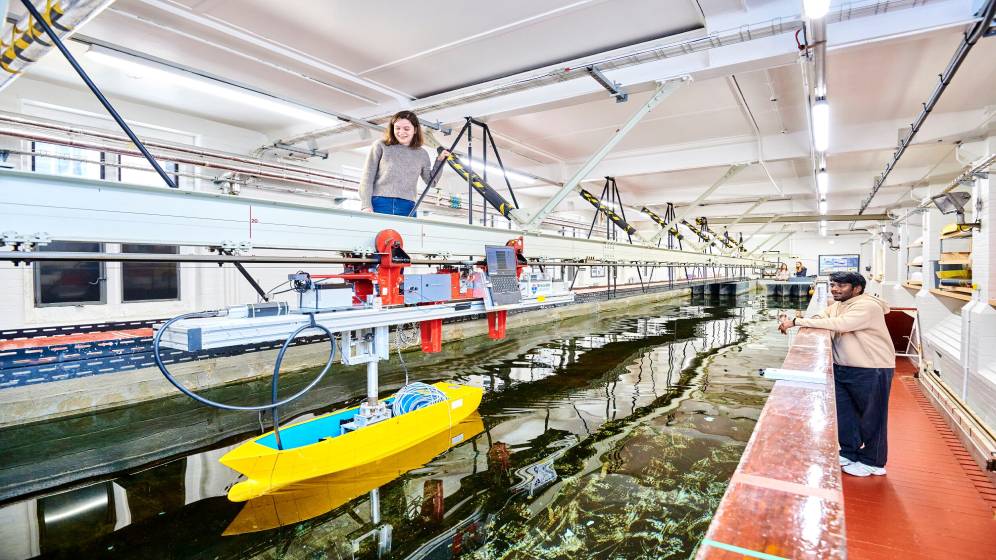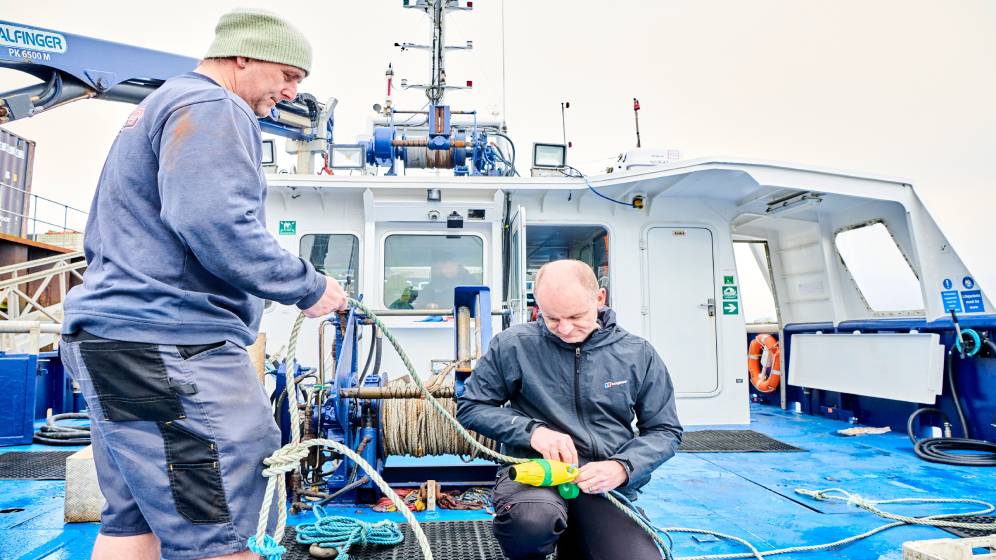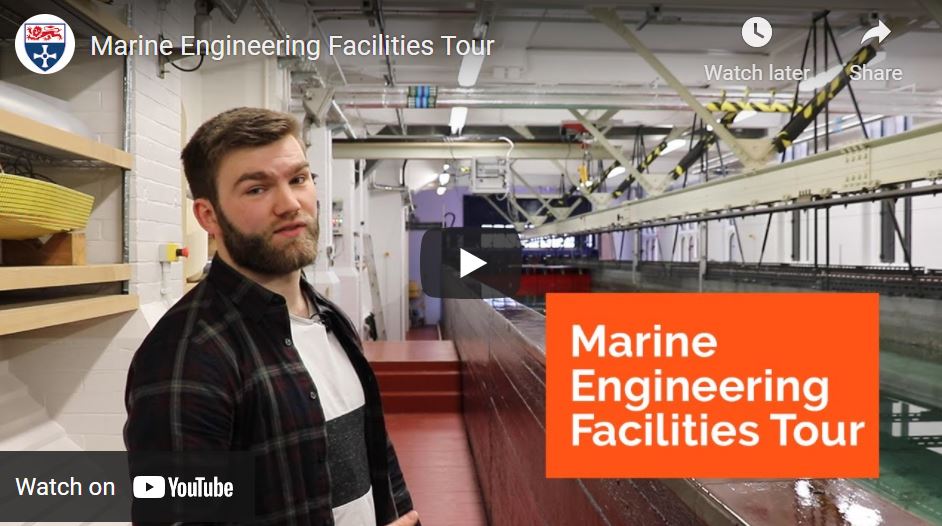Marine Technology MPhil, PhD
The MPhil and PhD programmes in Marine Technology provide research training, supervision and collaboration to international standards.
You are currently viewing course information for entry year:
Start date(s):
- September 2026
- January 2027
- April 2027
Overview
-
intensive subject-specific supervision
-
training in research methodologies and core skills
-
undertake paid laboratory demonstrations
-
tutor, to gain teaching experience
Important information
We've highlighted important information about your course. Please take note of any deadlines.
Please rest assured we make all reasonable efforts to provide you with the programmes, services and facilities described. However, it may be necessary to make changes due to significant disruption, for example in response to Covid-19.
View our Academic experience page, which gives information about your Newcastle University study experience for the academic year 2025-26.
See our terms and conditions and student complaints information, which gives details of circumstances that may lead to changes to programmes, modules or University services.
Qualifications explained
Find out about the different qualification options for this course.
An MPhil is available in most subject areas. You receive research training and undertake original research leading to the completion of a 40,000 - 50,000 word thesis.
Find out about different types of postgraduate qualifications
A PhD is a doctorate or doctoral award. It involves original research that should make a significant contribution to the knowledge of a specific subject. To complete the PhD you will produce a substantial piece of work (80,000 – 100,000 words) in the form of a supervised thesis. A PhD usually takes three years full time.
Find out about different types of postgraduate qualifications
How you'll learn
This research degree operates through the Postgraduate Researcher Development Programme (PGRDP). This is part of the Faculty of Science, Agriculture and Engineering (SAgE) Graduate School.
Your original research project is managed in the marine technology research groups. There is flexibility in how your research outputs are achieved. Supervisory inputs and collaborations with other Schools and Faculties are common.
Aside from the PGRDP, the programme of work suits you and your project requirements. You'll achieve a certain number of credits through the PGRDP and School in your first two years. You'll also:
- write a thesis for viva voce examination
- have the opportunity to attend regional and international conferences in your chosen subject area
- prepare papers for publication in academic journals
Depending on your modules, you'll be assessed through a combination of:
- Thesis
- Viva
We offer a wide range of projects for the thesis. These will be provided by our academics. You can also propose your own topic.
Our mission is to help you:
- stay healthy, positive and feeling well
- overcome any challenges you may face during your degree – academic or personal
- get the most out of your postgraduate research experience
- carry out admin and activities essential to progressing through your degree
- understand postgraduate research processes, standards and rules
We can offer you tailored wellbeing support, courses and activities.
You can also access a broad range of workshops covering:
- research and professional skills
- careers support
- wellbeing
- health and safety
- public engagement
- academic development
Find out more about our postgraduate research student support
The Marine, Offshore and Subsea Technology subject group page links to our specialist research areas. You'll be able to:
- explore possible research programmes
- find out more about staff working in these research areas
- identify a potential research supervisor
Your development
Faculty of Science, Agriculture and Engineering (SAgE) researcher development programme
Each faculty offers a researcher development programme for its postgraduate research students. We have designed your programme to help you:
- perform better as a researcher
- boost your career prospects
- broaden your impact
Through workshops and activities, it'll build your transferable skills and increase your confidence. You’ll cover:
- techniques for effective research
- methods for better collaborative working
- essential professional standards and requirements Your programme is flexible.
You can adapt it to meet your changing needs as you progress through your doctorate.
Doctoral training and partnerships
There are opportunities to undertake your PhD at Newcastle within:
- a Centre for Doctoral Training (CDT)
- a Doctoral Training Partnership (DTP)
Being part of a CDT or DTP has many benefits. These include:
- combined research expertise and training of many leading universities, academic schools and academics.
- studying alongside a cohort of interdisciplinary PhD students
PhDs are normally funded. There may be pportunities available in your subject area. You’ll find these in the fees and funding section on this course. The following centres/partnerships below may have PhD opportunities available:
Your future
Our Careers Service
Our expert Careers Service is here to help you take the next steps in your professional life. We will support you while you’re studying with us and for up to three years after you graduate.
You will have access to expert one-to-one advice and guidance through our campus careers centre and online, along with digital resources, workshops, networking opportunities, and careers and recruitment events.
We’ve been awarded 5 QS Stars for Student Employability (2025). Many of our degrees are shaped by strong links with national and international businesses. We are committed to helping you access real-world experience opportunities and develop key skills through paid work placements and internships.
Quality and ranking
All professional accreditations are reviewed regularly by their professional body
If you’re studying an accredited degree and thinking about working in Europe after you graduate, the best place to find current information is the UK Government’s guidance on recognition of UK professional qualifications in EU member states. This official resource explains whether your profession is regulated in another country, what steps you need to take, and which organisation you should contact.
Facilities
You'll be part of the School of Engineering and you'll learn in state-of-the-art labs and fantastic facilities, many of which are unique to Newcastle University. You'll have access to our:
- unique large-scale laboratories to help you learn and understand concepts taught in class
- Blythe Marine Station and our high-speed research vessel, The Princess Royal
- cavitation tunnel to test models of propellers, turbines, submarines and more
- towing tank to conduct ship model experiments
- combined wind, wave and current tank to experience modelling of the full offshore environment
- hydrodynamics laboratory with wave-making and electronic recording equipment
- engine laboratories, which include facilities to test diesel engines
- dedicated computer cluster running specialist marine design software
- university, regional and national HPCs (High-Performance Computing)
- specialist marine technical library and historical archive
Fees, Funding and Scholarships
Tuition fees for 2026 entry (per year)
We are unable to give an exact fee, this is why the fee is shown as a range. This fee range takes into account your research topic and resource requirements.
Your research topic is unique so it will have unique resource requirements. Resources could include specialist equipment, such as laboratory/workshop access, or technical staff.
If your research involves accessing specialist resources then you're likely to pay a higher fee. You'll discuss the exact nature of your research project with your supervisor(s). You'll find out the fee in your offer letter.
Home fees for research degree students
As a general principle, you should expect the tuition fee to increase in each subsequent academic year of your course, subject to government regulations on fee increases and in line with inflation.
Depending on your residency history, if you’re a student from the EU, other EEA or a Swiss national, with settled or pre-settled status under the EU Settlement Scheme, you’ll normally pay the ‘Home’ tuition fee rate and may be eligible for Student Finance England support.
EU students without settled or pre-settled status will normally be charged fees at the ‘International’ rate and will not be eligible for Student Finance England support. You may be eligible for a scholarship worth 25% off the international fee. Search our funding database.
If you are unsure of your fee status, check out the latest guidance here.
Scholarships
We support our EU and international students by providing a generous range of Vice-Chancellor's automatic and merit-based scholarships. See our searchable postgraduate funding page for more information.
What you're paying for
Tuition fees include the costs of:
- matriculation
- registration
- tuition (or supervision)
- library access
- examination
- re-examination
- graduation
Find out more about:
If you are an international student or a student from the EU, EEA or Switzerland and you need a visa to study in the UK, you may have to pay a deposit.
You can check this in the How to apply section.
If you're applying for funding, always check the funding application deadline. This deadline may be earlier than the application deadline for your course.
For some funding schemes, you need to have received an offer of a place on a course before you can apply for the funding.
Search for funding and scholarships
Find funding available for your course
Entry requirements
The entrance requirements below apply to 2026 entry.
Qualifications from outside the UK
English Language requirements
Admissions policy
This policy applies to all undergraduate and postgraduate admissions at Newcastle University. It is intended to provide information about our admissions policies and procedures to applicants and potential applicants, to their advisors and family members, and to staff of the University.
University Admissions Policy and related policies and procedures
Credit transfer and Recognition of Prior Learning
Recognition of Prior Learning (RPL) can allow you to convert existing relevant university-level knowledge, skills and experience into credits towards a qualification. Find out more about the RPL policy which may apply to this course
How to apply
Using the application portal
The application portal has instructions to guide you through your application. It will tell you what documents you need and how to upload them.
You can choose to start your application, save your details and come back to complete it later.
If you’re ready, you can select Apply Online and you’ll be taken directly to the application portal.
Alternatively you can find out more about applying on our applications and offers pages.
Apply Online
Open days and events
Find out about how you can visit Newcastle in person and virtually
Overseas events
We regularly travel overseas to meet with students interested in studying at Newcastle University.
Get in touch
Questions about this course?
If you have specific questions about this course you can contact:
Postgraduate Research Administrator
School of Engineering
Telephone: +44 (0) 191 208 5304
Email: soe.pgr@ncl.ac.uk
General enquiries
For more general enquiries, you could also complete our online enquiry form.
Application enquiries
If you've got a question about your application, send us an enquiry via the application portal you applied through.
If you haven't applied yet, you can send your questions via our enquiry form.
Live chat
Our Ncl chatbot might be able to give you an answer straight away. If not, it’ll direct you to someone who can help.
You'll find our Ncl chatbot in the bottom right of this page.
Chat to our students
Choosing a university is a big decision. If you've got questions about a particular course, student life or the city of Newcastle, why not chat to our friendly students or graduates!
Keep updated
We regularly send email updates and extra information about the University.
Receive regular updates by email
Social media
Get involved with the School of Engineering social media.
